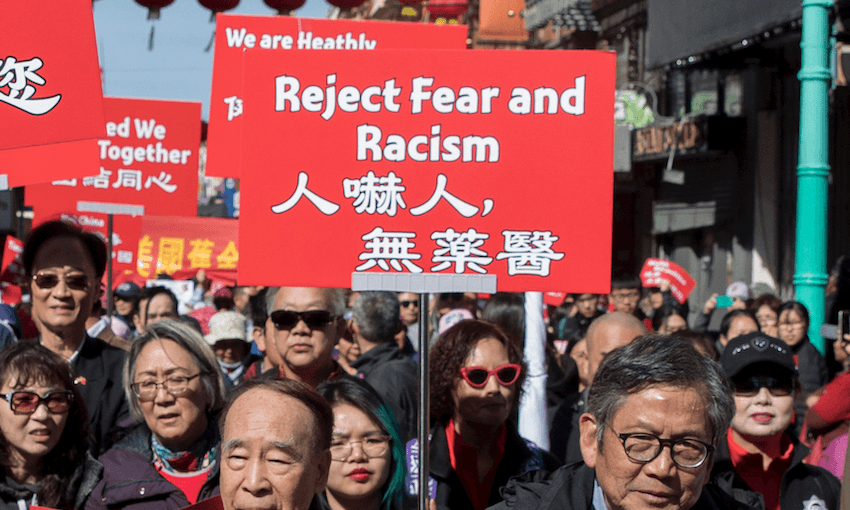While the pandemic has certainly exacerbated anti-Asian sentiment, New Zealand has a long history of turning a blind eye to racism of this kind. The culture of silence is maintained by both sides, says Liang Cui, but she knows first hand the importance of speaking out.
When the first case of Covid-19 was discovered in New Zealand in late February, I was worried – not just about the pandemic, but about the chance of being harassed because of my Asian identity. It wasn’t long before I realised I was right to be fearful.
During level four lockdown, I was out walking near our apartment in Wellington with my partner, a New Zealander with Japanese heritage, when a passing stranger shouted “Wuhan!” at us. Only a week later, when walking to the supermarket, a stranger told my partner to “fuck off”.
Such abuse is not new to either of us. My partner remembers being verbally abused in his youth, being called “yellow trash” and told to “go back to your own country”. I have been the victim of both racist abuse and public physical attacks since coming to New Zealand.
The first attack happened about one month after my arrival in 2016 – I’d come from China to do my PhD. I was on my way home from the supermarket around 7pm when a white man walking past stepped into my path and shoulder charged me, nearly knocking me down. Swearing loudly, he chased after me; my legs trembled as I tried to get away. This experience, coming so soon after my arrival in New Zealand, left me shaken. For weeks after I tried to only leave the apartment between 9am and 5pm and avoided going anywhere that seemed potentially dangerous.
The second attack happened two years later, in July 2018: I was walking to the gym when a passerby took a sip of water from a bottle and without warning, spat it out on my arm.
In April this year, I posted these experiences on my personal Facebook account. Following the advice of a friend, I shared it on Vic Deals, a popular Wellington Facebook page. Both of the posts received many supportive replies from both friends and strangers. But one commenter called me “racist” for referring to the person who abused me as “a white man”. Within a couple of hours, Vic Deals deleted my post.
Meanwhile, a stranger commented on my personal Facebook page that I was one of those “ruthless Chinese” and accused me of being racist. He also sent me a personal message, which I deleted without reading. While I received messages from other strangers expressing their sympathy and support, I also received advice from acquaintances – Asian and non-Asian – to calm down and “let it go”.
These personal experiences have given me insight into the long history of anti-Asian racism in New Zealand, which began with the first Chinese to arrive 170 years ago. It also showed the importance of not “letting it go”. Before I arrived in New Zealand, I believed it was a country that embraced racial tolerance. However, both my partner’s and my own experiences show New Zealand is not exempt from racism, and it is not hard to foresee increasing anti-Asian sentiment as a result of the pandemic.
Yet I have heard no explicit statement from the government about racism and Covid-19, other than a euphemistic appeal to “be kind to each other”. Initially I tried to see the positives in the “be kind” strategy – perhaps the government was worried that explicitly mentioning anti-Asian racism could backfire, and actually provoke it. But the increasing complaints from Asian people about racial abuse during the pandemic show clearly that the “be kind” euphemism isn’t helping them. From my own research, I have learnt about the longstanding silence New Zealand keeps in regards to its anti-Asian problem. This makes me wonder – is the government’s reluctance to mention racism stemming from the pandemic really about not provoking racist behaviour, or is it just another example of turning a blind eye to anti-Asian attitudes?
This culture of silence is maintained by both sides – the one perpetuating the abuse and the other that keeps quiet about it – and is nurtured by elements of our political and societal discourse. Breaking it down requires massive effort. My experiences have shown me the necessity of speaking out, but doing so takes courage. My decision to speak publicly may be met by more attacks, or it may be in vain. Or it may in some small way contribute to the current momentum against racism, both here in New Zealand and around the world.
